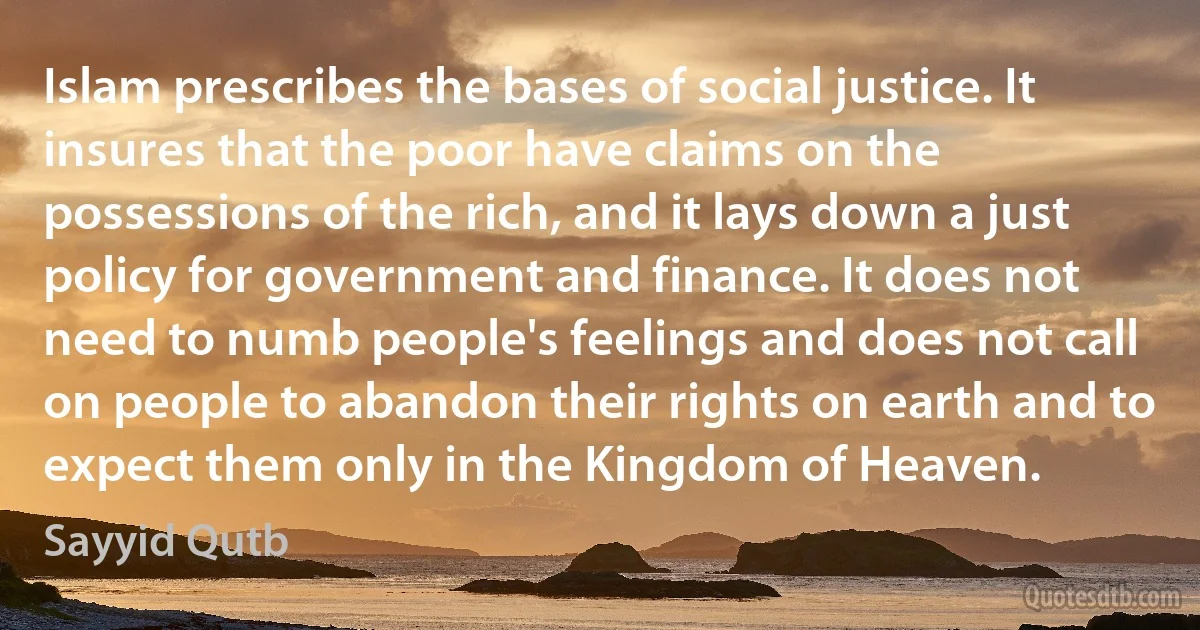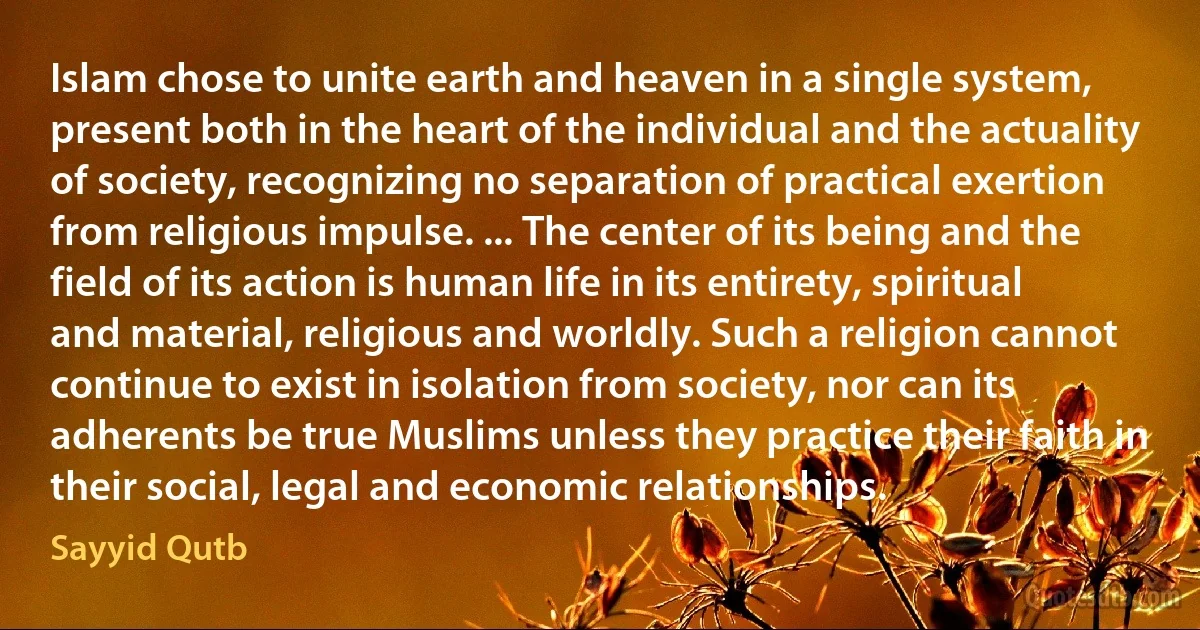Sayyid Qutb quotes
The defeatists should fear Allah lest they distort this religion and cause it to become weak on the basis of the claim that it is a religion of peace. Yes, it is the religion of peace but in the sense of saving all of mankind from worshiping anything other than Allah and submitting all of mankind to the rule of Allah.

Sayyid Qutb
There can be no real place for personal possession unless it carries with it the rights of disposal and use. The condition on which this right must stand is that of wisdom in the disposal; if the disposal of property is foolish, then the ruler or society may withdraw this right of disposal.

Sayyid Qutb
The cardinal principle that Islam ratifies along with that of the right of individual possession is that the individual is in a way a steward of his property on behalf of society; his tenure of property is more of a duty than an actual right of possession. Property in the widest sense is a right that can belong only to society, which in turn receives it as a trust from Allah who is the only true owner of anything.

Sayyid Qutb
The establishing of the dominion of God on earth, the abolishing of the dominion of man, the taking away of sovereignty from the usurper to revert it to God, and the bringing about of the enforcement of the Divine Law (Shari'ah) and the abolition of man-made laws cannot be achieved only through preaching. Those who have usurped the authority of God and are oppressing God's creatures are not going to give up their power merely through preaching; if it had been so, the task of establishing God's religion in the world would have been very easy for the Prophets of God. This is contrary to the evidence from the history of the Prophets and the story of the struggle of the true religion, spread over generations.

Sayyid Qutb
In Islam, there is no priesthood, and no intermediary between the creature and The Creator; but every Muslim from the ends of earth or in the paths of the sea has the ability of himself to approach his Lord without priest or minister. Nor again can the Muslim administrator derive his authority from any papacy, or from Heaven; but he derives it solely from the Muslim community. Similarly, he derives his principles of administration from the religious law, which is universal in its understanding and application and before which all men come everywhere as equals.

Sayyid Qutb
It is not the intention of Islam to force its beliefs on people, but Islam is not merely ‘belief'. As we have pointed out, Islam is a declaration of the freedom of man from servitude to other men. Thus it strives from the beginning to abolish all those systems and governments which are based on the rule of man over men and the servitude of one human being to another. When Islam releases people from this political pressure and presents to them its spiritual message, appealing to their reason, it gives them complete freedom to accept or not to accept its beliefs.

Sayyid Qutb
Islam knows only two kinds of societies, the Islamic and the Jahili. The Islamic society is that which follows Islam in belief and ways of worship, in law and organization, in morals and manners. The Jahili society is that which does not follow Islam and in which neither the Islamic belief and concepts, nor Islamic values and standards, Islamic laws and regulations, or Islamic morals and manners are cared for.

Sayyid Qutb
Islam's way of life is unique, for in systems other than Islam, some people worship others in some form or another. Only in the Islamic way of life do all men become free from the servitude of some men to others and devote themselves to the worship of God alone, deriving guidance from Him alone, and bowing before him alone.

Sayyid Qutb


